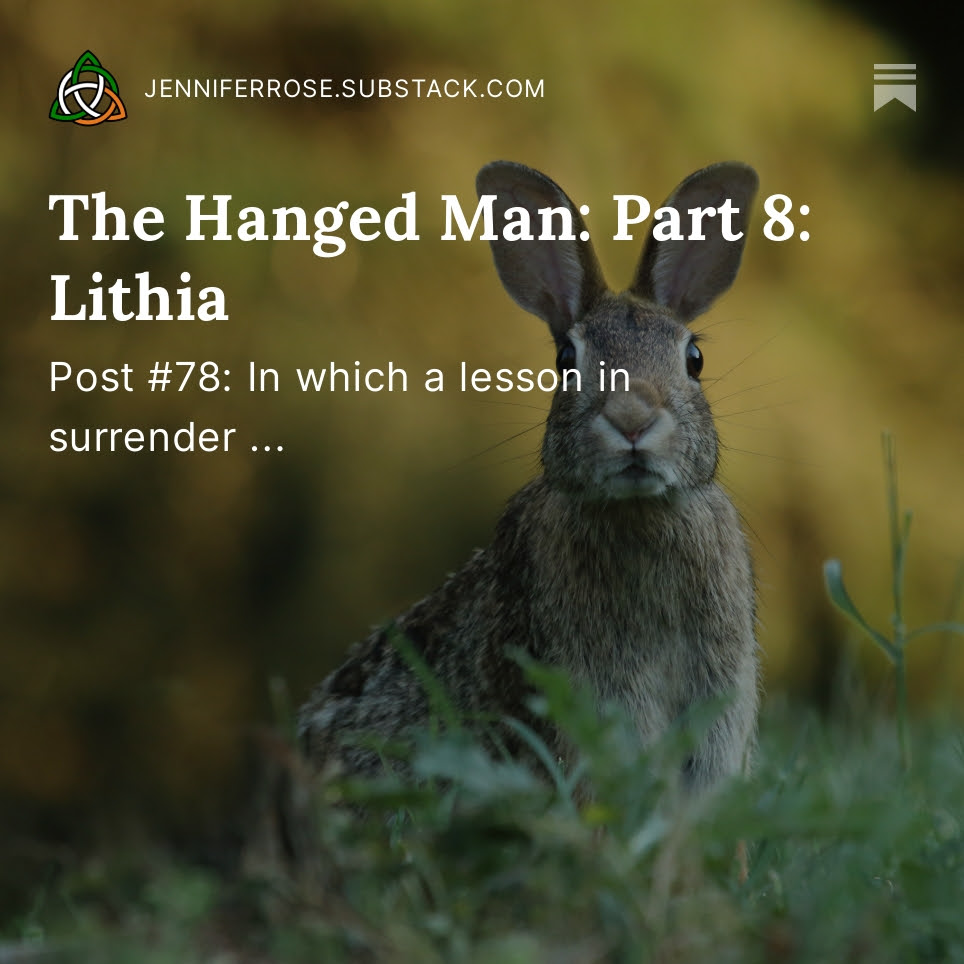by Jenny Rose | Jun 22, 2024 | Emotional Intelligence, Needs
In a recent conversation, someone asserted to me that ultimately everyone does what they want. I felt an immediate fury. That does not describe my life at all. I chewed on my outrage and resentment for a few weeks, simmering, until I decided to get over it and figure out why I was so hijacked.
I was immediately lost in the puckerbrush. Making choices about what we do and don’t do is intimately tied to needs and wants, and I have yet to be able to distinguish between the two once beyond the level of survival needs, or find any kind of clarity from someone else. Needs and wants are unpleasant territory I don’t want to explore. (See? There it is. I don’t want to. Yet I am, and I might need to.)
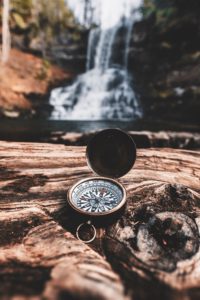
Photo by Bryan Minear on Unsplash
Then there’s the whole actions versus words aspect. People say they want things but don’t act accordingly. If we really want something, our behavior reflects it. If our behavior does not reflect our stated wants, we’re deceiving ourselves, or someone else, or both. I deeply distrust mixed messages. More unpleasant territory and old trauma.
Choice is in there, too. Choice is a big subject and a major theme in this blog. As I’ve mused on the statement ‘we all do what we want to do’ and made notes (you know I always make notes), I’ve wondered how we can compare a parent in some war-torn place attempting to keep their starving child alive another day with a wealthy person trying to decide if they want to fly their private plane to Paris for dinner or stay in and watch a movie in their in-home theater and have their chef prepare a seven-course meal. With wine, naturally.
One person has limited choices, all excruciating, to achieve continued survival for a few hours. The other has almost unlimited choices, all luxuries. How can I possibly compare the two? Can we say the parent trying to keep their child alive is doing what they want to do? Come on! Yet they do want to keep their child alive, right?
Perhaps it seems complicated and confusing because it’s complicated and confusing.
I wound up with a page full of notes, some sobering personal revelations, and a hairball.
On an internet search, I found articles pointing out the distinction between doing exactly what we want to do in any given moment (a toddler or a hedonist) and doing things we don’t want to do in service to an outcome we do want. That made sense to me.
If we focus on wanted outcomes rather than individual actions, we must have the ability to plan, look ahead, anticipate, and understand possible consequences of our actions. We also must attempt to predict the responses and reactions of the people around us to our actions, which means we have to understand something about emotional intelligence …

Photo by Manuel Sardo on Unsplash
… and now we’re back in the puckerbrush. I hate predictions. I don’t like leaps of faith. (I have a magnet on my fridge that says “Leap and the net will appear.” I don’t know why I keep it. It makes me mad every time I read it. Show me the warranty on that net. Show me the weight testing. Show me the damn net, in fact. Who will set it up when I leap? Are they paying attention or looking at their phone?) I trust my intuition, but I know I can be wrong. People are unpredictable. Life is unpredictable.
And yet we humans, including me, make choices all day long every day based on what we think will or might or could happen next. I’ve written about attachment to outcomes before. As I get older I’ve replaced a lot of my desired specific outcomes with simply wanting to know I did my best, regardless of outcomes. I may not like the outcome I get, but my integrity remains intact.
And then there are the people who don’t seem to understand actions and consequences in any kind of relationship. They choose what they choose in the moment and are hurt and/or outraged to discover the downstream consequences of that choice, especially in the context of many other choices. I observe this is a frequent divide along male/female lines. Women generally see everything as connected. Men generally see most things as discrete, in their own box. This is just one reason why I think “romantic” male/female relationships can be so devastating. We are often on different pages without knowing it.
If it’s true that we all do what we want in service to a desired outcome, what happens when my choices collide with yours? If you perceive me as blocking progress to your desired outcome you’re going to feel angry, and vice versa. We’re going to want each other to make different choices aligning with our personal desires. Most of the time, people won’t do that. We’re all attached to the outcomes we want.
A big piece of this for me is emotional labor, that hidden torrent winding through my life, sweeping away incalculable energy, time, and innocence. One of my priorities is healthy relationships. Close healthy relationships require time and attention; the ability to make choices for the good of the relationship rather than considering only our own wants and needs. This is an ongoing practice, not doing something we really don’t want to do once every six months and expecting applause. It means we have to face our own demons, learn to communicate clearly and honestly, negotiate, share power, and problem solve. It means boundaries and respect. It means reciprocity.
Having learned about reciprocity, I now prioritize my relationships to the degree the other does. I will not sign up to do all the emotional labor. I’m not interested in a close relationship like that. The price is too high. I’d rather put my energy into my relationship with myself. At least I appreciate my own efforts!
My conclusion about this ‘we all do what we want’ thing (gritted teeth – it still makes me mad), is it may be true if we consider our choices in the context of outcomes. I’ve made a lot of choices out of the clear knowledge that they were simply the right thing to do, too, choices that have been terrible for me, terrible in some of their consequences, yet ultimately still were the right thing for me to do. I had no outcome in mind. I don’t regret those kinds of choices, but they left permanent scars.

Photo by Cristian Newman on Unsplash
I want to blame others for all the time I’ve spent doing things I didn’t want to do, but it seems what we do and don’t do are entirely in our own hands, our own responsibility. Our lives are built on the choices we make, big and small, every hour of every day. If we don’t like our lives, we need to pay attention. Perhaps the useful question to ask ourselves if we hate what we’re doing at any given moment is, “Why am I doing this?” If we’re focused on a particular desired outcome, we may need to stop and think about whether our actions are effective in getting us there. Spending years of our lives desperately hoping and trying to reach an outcome and doing things we hate is not effective. I know this from personal experience. Our wants and needs change over time; what we once longed for may no longer be something we’re interested in. Sometimes we need to reality check ourselves. If we’ve been trying to get loved, for example, or please someone for a long period of time, it might be time to acknowledge our goal is not attainable or not worth attaining. Sometimes no matter how hard we work for an outcome it’s not achievable.
Then there’s the flip side: None of us do what we don’t want to do. That one is equally hard for me to swallow, but that’s a conversation for another day.
Questions:
- How much of each day do you spend doing things you don’t want to do? Why?
- What desired outcome(s) in your life requires you to do things you don’t want to do?
- Do you see your daily choices as isolated or part of a larger context attached to your wants and needs?
- Do you feel forced to labor emotionally? What would happen if you stopped?
- Who in your life reciprocates your level of emotional labor?
Leave a comment below!
To read my fiction, serially published free every week, go here: 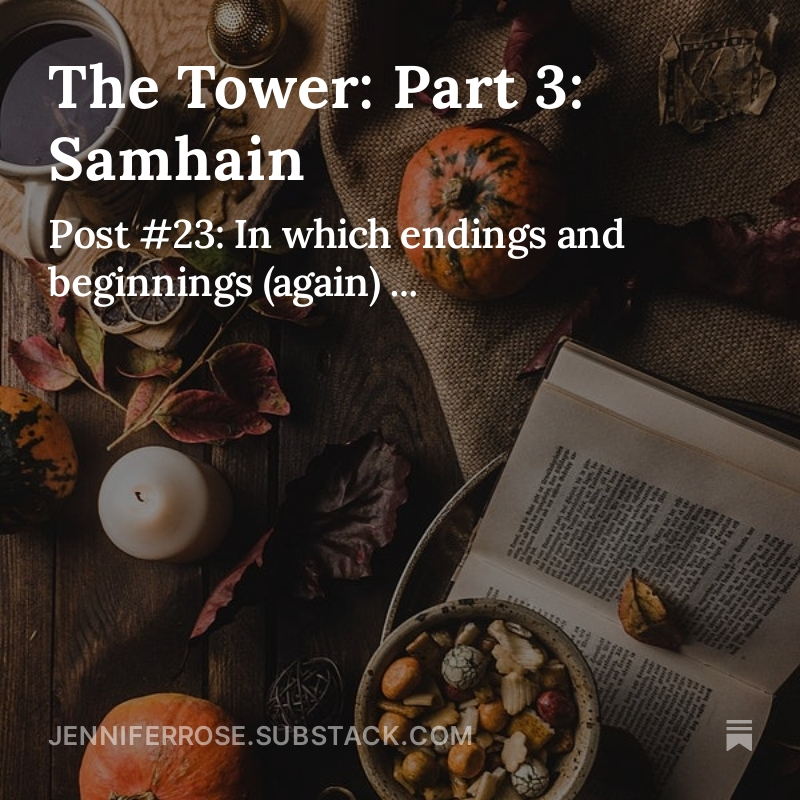
by Jenny Rose | May 26, 2024 | Connection & Community, Emotional Intelligence
I’ve always said I hate politics. In hindsight, what I was really expressing was discomfort with divisiveness and conflict, lies and deceits and power games. Talking about politics feels like pinning Jello to the wall. People throw labels and jargon around. Terms are not defined and agreed upon. True intent is obfuscated. Actions and words don’t line up. Contempt and outrage rule.
The last eight years have been brutal in the political arena. I have an internal list of words that send me into immediate flight from conversations and interactions. If I can’t flee, for example if I’m at work, I put on a neutral face and withdraw, leaving a robot to carry on until the subject has changed to vacations, or family, or gardening, or even the same personal health stories I’ve heard from patients and patrons many times before. Anything but politics.

Photo by roya ann miller on Unsplash
Yet everything feels politically charged right now. Every aspect of our culture, our basic needs, our planet, our economics, our bodies and our minds, winds up in an increasingly bleak morass of hatred, violence, fear, isolation, and manufactured confusion.
Interestingly, in my own fictional work, I’ve been stuck for some time in writing about a small egalitarian community whose harmony is disrupted by a member who actively seeks more power. The de facto leader, a woman, doesn’t know how to combat this aggression because I don’t know how to combat it!
Last winter my partner talked with me about a video series he’d found on YouTube called What is Politics? Before he was finished talking I was shaking my head. I wanted nothing to do with it. The words and terms are meaningless. It’s all just hate. It’s impossible to talk sensibly about and I don’t want to know more than I know; I don’t want to wander around in a toxic wasteland during my free time. Besides, I want to read, not listen to and watch YouTube.
(Yes, I am a bit of a snob that way.)
My partner sent me a link anyway. He’s persistent like that. I was duly annoyed. For some reason, I didn’t delete the link. One day when nothing in particular was going on I clicked through and watched it.
Irritatingly, I was impressed. The presenter (I think his name is Daniel) is smart, by which I mean he’s incredibly knowledgeable, well read, well spoken, and he’s a synthesist. He understands complexity. He has a sense of humor. He was not hateful and he did not speak in jargon. He pushed no ideology. He defined every single term he used. In fact, the very first thing he did was define politics as “anything related to decision making in groups.”
That simple, clear definition hooked me. I saw at once that politics are everywhere because politics are everywhere. My perspective widened from our current shameful global and national politics to include home, school, work, and neighborhoods. When two or more people are together anytime, anywhere, politics are in play. My resistance dissolved. I wanted to learn more. I sensed I was on the edge of figuring out how to solve my creative fictional dilemma.
My partner sent all the links to the video series and I settled down to go through the videos, one at a time. I use a split screen, taking notes on one side and watching the video on the other.
Politics is about power, the power to make decisions. It’s ridiculously simple. Without understanding it, I’ve been writing about politics for eight years on this blog as I explore choice and personal power. Power is something we all need to understand and master; it’s the cornerstone of emotional intelligence and living effectively.
This series has been the most valuable piece of learning I’ve engaged with since I learned emotional intelligence, more than ten years ago. I understand now why I’ve never been able to get a handle on politics, and why I’ve been so repulsed by the whole subject. Subconsciously, I’ve recognized the language games and manipulations, and I won’t deal in language games and manipulations. I don’t trust ideology, including my own. I don’t trust “news.” I don’t trust all the “worbs,” Daniel’s term for meaningless language no one defines clearly and correctly. Just about the only thing I do trust is that following the money behind every ideology, whether it be food, climate, aspects of gender and sexuality, geopolitics, religion, or elections, invariably uncovers corruption and reveals the puppet masters.

Photo by Tim Gouw on Unsplash
And we are the puppets. Nicely divided along manufactured lines. Emotionally manipulated into defensiveness, distrust, hate, and fear so any kind of unity against the powerful elites who have a stranglehold on the vast majority of wealth and decision-making becomes increasingly improbable. The economic inequality most of us stagger under, the thing we all have in common, cannot be clearly seen because we’re captivated by a thousand tempting but ultimately meaningless ways to hate and fear one another.
That’s just the way the people at the top of the hierarchy want it. We’re good little “patriots,” incapable of unifying.
I don’t usually choose willful ignorance. It’s not a useful choice, but until now I hadn’t found a clear, concise, pragmatic way to become educated about political terminology and history. I’ve never before recommended a video series. I hope you will check out What is Politics.
Questions:
- What are your current reactions to the subject of politics?
- What aspect of politics do you find particularly troublesome or uncomfortable?
- Do you feel more or less connected to family, friends, neighbors, and community than you did ten years ago?
- Would you prefer to live in a political context of economic equality or economic hierarchy (our current state)?
Leave a comment below!
To read my fiction, serially published free every week, go here: 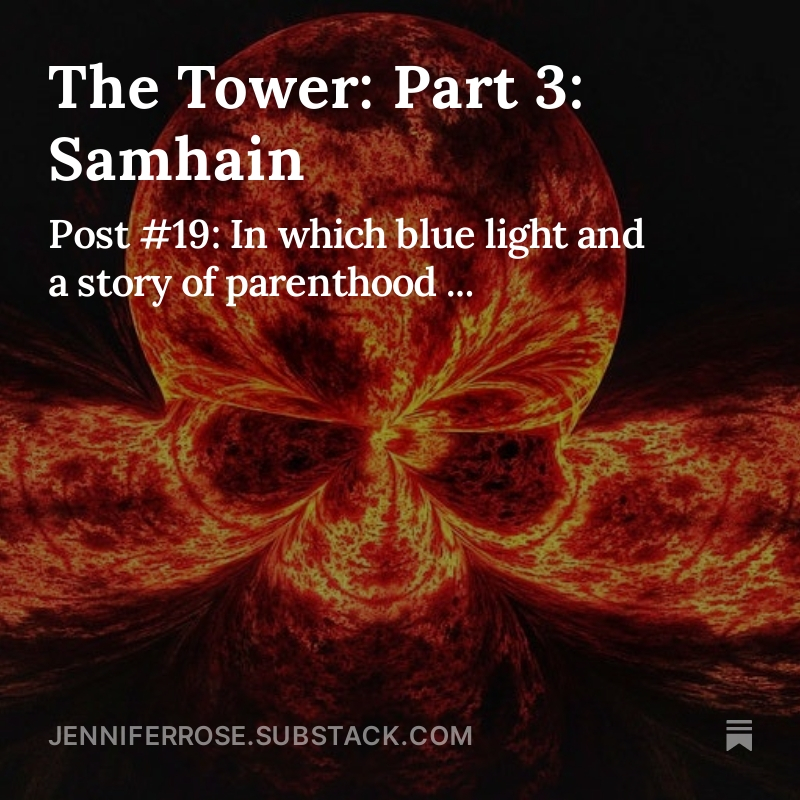
by Jenny Rose | Mar 16, 2024 | A Flourishing Woman, Mind
I’m still looking at my locked room, which I wrote about in my last post. I’ve had some interesting conversations about that post.
My emotional intelligence coach (who has now retired) used a phrase years ago when I was working formally with him: “I want everything you are and nothing you are not.”
It touched a deep, lifelong longing in me to be loved, accepted, seen in my entirety, though I know I would never allow myself to be seen in my entirety.
Through the years since, I’ve carried that phrase with me as I love and interact with those around me. Depending on my mood, it’s a ridiculous, impossible-to-achieve sentiment for any human being, cruel in its false hope, akin to rom coms. Or it’s something to aspire to, a reminder to be softer with my rigidities and expectations, quicker to forgive.
As I wrote a couple of weeks ago about locked internal rooms, it suddenly struck me in all the years I’ve been thinking about that phrase I never once said it to myself. I’ve been focused on my grief and shame about never being good enough to find that kind of love from another human being, or on my suspicion that none of us can honestly say that to one another. Not day after day in the long term.

Photo by Ryan Moreno on Unsplash
Over the last decade or so I’ve slowly, agonizingly, stopped hoping a prince on a white horse would show up who would love everything I am, or even love part of what I am unconditionally. (But, honestly, I wanted him to love everything!) I’ve turned more and more towards meeting my own needs for intimacy and connection, realizing the pain of disconnect is from within myself, not external. I want unconditional love. It’s not a feeling I have any power to make others feel.
Unconditional love towards myself, however, is a minute-by-minute challenge in which I have all the power.
Now, that’s a thought.
Extending unconditional love to myself is hard. I would a thousand times rather love someone else and dream of Mr. Right, except I know how that ends … and frankly, I’m bored with it. In fact, it occurred to me a couple of days ago I’m really not interested in Mr. Right anymore. Or Mr. Wrong. Or Mr. Anybody, romantically speaking. I’ve been smiling about that realization ever since. It’s oddly freeing. I watch women in my age cohort with their husbands/significant others where I work in a pool rehab center and think, “Better you than me, sister!” And smile some more. An enigmatic lifeguard smile (I hope).
The whole idea of romance doesn’t fascinate me anymore unless it’s strictly fantasy. Repairing and healing my relationship with myself is far more interesting. This refocus may be the greatest gift of menopause. I know some women grieve over it, but for me it’s freedom from what was frequently an overwhelming, stressful, and complicated biological imperative. Whew.
Is it possible for us to love ourselves unconditionally? Is it possible for me to do so?
What a question! A question leading straight back to my locked room.

Photo by John Salvino on Unsplash
I can’t love everything I am and nothing I’m not if I don’t know everything I am. If I don’t want to know. If I refuse to find out.
(Item: in my last Tarot spread for Imbolc I drew the Sea: Plumbing the Depths card.)
Now, like all of us, I have acceptable (to me) qualities and traits and unacceptable ones. I’m a mishmash of genetic inheritance and learned behavior. I’m a hot mess and I’m reasonably competent and effective. Sometimes all at the same time!
And I’m supposed to unconditionally love that?
Well, yes. That’s what unconditional love is, right?
I have a varicose vein popping up. I’m deeply insulted. WTF? I’m supposed to love that? I’m supposed to love the genetic inheritance/sun exposure/years of chronic pain that caused me to be sedentary/and other factors in the tired, bulging, blue-violet vein in my lower leg? What about the foot I’m pretty sure I’m developing a touch of arthritis in? What about my aging neck? What about my age-spotted hands (more sun exposure)?
And that’s just the beginning. I’m supposed to love the roots of my perfectionism, my speeding, my anxiety? Well, not the roots, but the child who was traumatized and developed those mechanisms to survive? (And did survive, let’s not forget.)
Romantically speaking, it’s easy to love white horses, roses, diamonds, champagne, sexy exotic vacations (none of which I find especially romantic, but you know what I mean!). I can love my competence, doggedness, creativity, integrity, ability to support others, and many other fine qualities (if I do say so myself). But the aches and pains, sleepless nights, endless loops of anxiety, tendency toward depression, rigidity, fawning, inept healthy boundaries and self-advocating – these are not lovable. These are a pain in the ass.
I am a frequent pain in my own ass.
Can anyone relate?
As for mistakes (I turned out the ladies’ locker room light while someone was still in there last week when we closed the pool!), shameful thoughts and feelings, dire deeds I wish I could forget, habitual catastrophizing, hurt I’ve inflicted on others, parenting mistakes, and a host of other miserable dead bodies in my locked room, unconditional love means I love those, too. It means I love my fallible, aging, flawed, exceedingly human self. All of it. All of me.

Photo by Cristian Newman on Unsplash
It makes me want to permanently lose the keys to my locked room.
Then there’s the “nothing I am not” part of the equation. Boundaries again. I’m so tired of working on boundaries. On the other hand, having no boundaries makes life not worth living, so I persevere. “Nothing I am not” includes what I was taught about myself and my role in my family as a child; false and limiting beliefs; my endlessly carping, nitpicking, internal critic; fear; despair; depression; anxiety; etc., etc. We carry so many burdens, and many of them never belonged to us in the first place. We took them upon ourselves, or someone forced them upon us, or we accepted them in order to ‘help’ someone else. Some are simply old coping mechanisms allowing us to survive our hard times but now outdated and useless.
At the end of all this, I wonder if our locked rooms are just another challenge in love. How much of ourselves do we shut away because we can’t love all of what we are, and we’re certain others couldn’t love us if they knew what was behind the door?
In the case of storing experience too horrific to manage, such as deep trauma, grief, or guilt, don’t those feelings need unconditional love most of all? The locked room itself, however we envision it, however we envision its door, is surely deserving of love too. It allows us to continue to function in life in spite of terrible experiences. It gives us respite, a way to pause, a way to give ourselves time to gain distance, wisdom, grow into new skills and learn how to help ourselves if and when we do crack the door open. It allows us to stay safe and sane.
For me, a choice to practice loving everything I am and nothing I’m not means I’ll be opening the door to my locked room and poking around in there. Now I’m curious. Could I at least consider loving what I find?
I’m considering it. Carefully.
Questions:
- What do you love about yourself?
- What do you have to do, be, or stop doing to earn your own love?
- Do you think more about finding someone to love you or practicing self-love?
- What if finding “true love” is impossible unless we love ourselves fully first?
Leave a comment below!
To read my fiction, serially published free every week, go here: 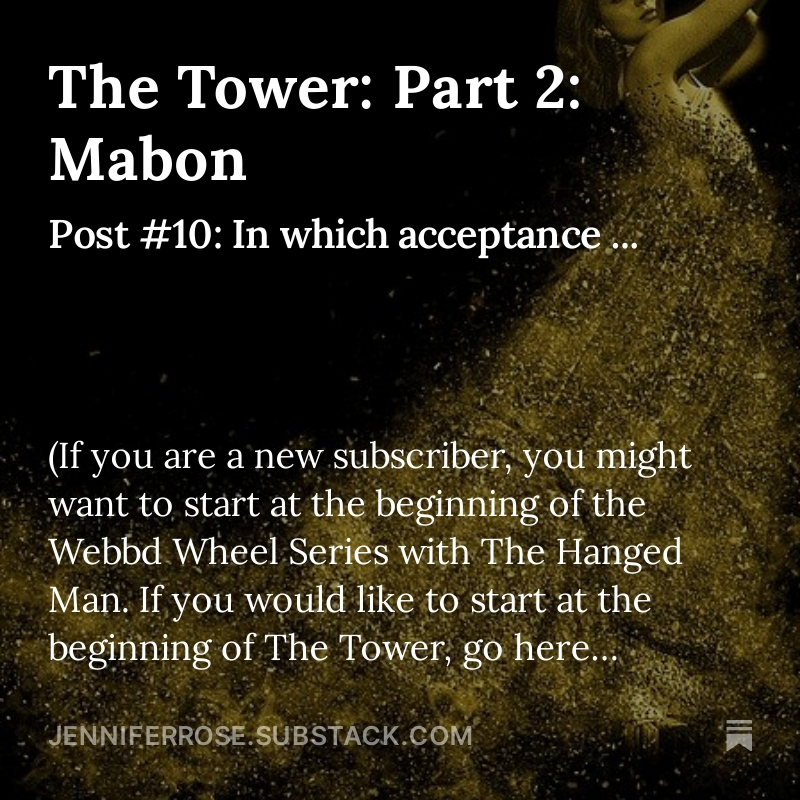
by Jenny Rose | Aug 5, 2023 | Power
Last week a Substacker I follow, Candace Rose Rardon, illustrated a memory I shared with her. I was absolutely thrilled. The union of my words and her art spoke to one of my core values: collaboration.
Collaboration is about power management. It’s defined as working with someone. Not directing them. Not submitting to them. Working with them. In other words, sharing power – power-with rather than power-over.

Image by Bob Dmyt from Pixabay
Is it just me, or are we as a culture moving away from sharing power rather than toward it?
Collaboration and cooperation lie at the heart of my fiction. All my life I’ve been preoccupied with working together, but I never had adequate language or studied power until I learned emotional intelligence. At that point the light dawned. I reviewed my relationships, both family and otherwise, through the lens of power.
It was a grim review. I set out to reclaim my power.
Let’s be clear: reclamation is not stealing.
I didn’t want to take power away from others. I wanted to reclaim what had been taken from me.
This involved needs, boundary work, and many other moving parts, most of which I’ve written about here over the last seven years (almost exactly seven years … wow), and all of which are woven into my books.
Speaking of my books, I have a dream that one day a visual artist will read my work, become inspired, and want to illustrate it. That’s not all. (Might as well dream big, right?) In the same dream a musician (drums and flute or pipe, at least) reads my work, becomes inspired, and adds music and a soundscape to it. I even dream one day we’ll develop the ability to incorporate scent into reading. 
I am a sensual person, and my writing reflects that. I myself see my characters and my world of Webbd vividly, but I’m not an artist. I respond deeply to music physically and emotionally, but I’m not a musician.
In every relationship I’ve sought collaboration. I’ve wanted a safe place to have an authentic voice, express an opinion, make a contribution. I’ve wanted the power to make choices. This has been true in the context of family, friends, spouses and boyfriends, coworkers, and community.
I have not been noticeably successful until the last ten years.
No matter how talented, strong, or knowledgeable we are, healthy collaboration can only make us bigger. Collaboration is tricky, though. It’s messy. We’re forced to deal with conflict, with different visions and voices than our own, different backgrounds, different belief systems, different ways of looking at the world and interacting with life. It’s work. It stretches us uncomfortably. We might have to be wrong (gasp!) and someone might find out we were wrong (horrors!).
Plenty of people say they want to collaborate when their true intention is a hostile takeover. Others seek collaboration as a way to make money or leverage other aspects of social power. Their agenda is to accrue power, not share it.
What Candace Rose Rardon did was extend a gift of generosity. When I sent her my memory I had no power over whether she chose to illustrate it or how she would illustrate it. I handed her my words and went on with life. I had no expectations. She sent back something beautiful woven of my words and her art. I’ve never met her. We exchanged no money. I know very little about her, but I do know this: she’s part of my tribe. She’s a creative collaborator.
Collaboration requires a willingness to be flexible and the willingness to accept someone’s vision regarding our art. As creators, we need to loosen our grip on our masterpieces and allow others to widen us. Perhaps someone else visualizes our character slightly differently than we do. Perhaps they see the character more clearly, or more fully than we can. As collaborators, we may be pushed to do more than we’ve done before, take new risks, try new things. Healthy collaboration makes us all more powerful, more expansive, more interesting, more textured.
We are stronger and more beautiful together than we are apart.

Photo by Helena Lopes on Unsplash
Collaboration is everywhere. It’s the falling rain and early birdsong on a spring morning. It’s the calling of shorebirds against the background of surf. It’s the buzzing of a fat bumblebee in a fragrant blossom. The world is unbelievably sensual. Walking through tall grass this time of year, the stems and heads turning straw-colored, the small scratching prick of grasshopper legs on my bare skin, the scent of warm grass in my nostrils, is a miracle of collaboration. A garden exists because of collaboration between countless forms of life and the weather.
We can’t collaborate in every situation all the time. Leaders lead. Parents parent. Bosses must manage their people, teachers their students. We all have areas in our lives we like to manage solo, including areas in our creative lives. On the other hand, we are seeing the consequences of no collaboration: chaos, fear, hatred, division, destruction, and social breakdown. We are now successfully being manipulated into choosing not to collaborate even with ourselves, but with consumerism, capitalism, and ideology instead.
Collaboration is wide. It’s not only about human-to-human interaction. If we don’t figure out how to collaborate with our planet, with the human and non-human life around us, and (perhaps most importantly) with ourselves, we will not thrive. We’ll solve no problems. Nothing will change. We’ll meet challenges as individuals and as communities and countries poorly. We will keep ourselves small, disorganized, and weak.
Or we can choose to combine our knowledge, our skills, our vision, and our humanity.
Questions:
- How have you collaborated successfully with others?
- How have you struggled with collaboration?
- What’s the hardest thing for you about sharing power with another?
- Are you open to collaboration? Why or why not?
Leave a comment below!
To read my fiction, serially published free every week, go here: 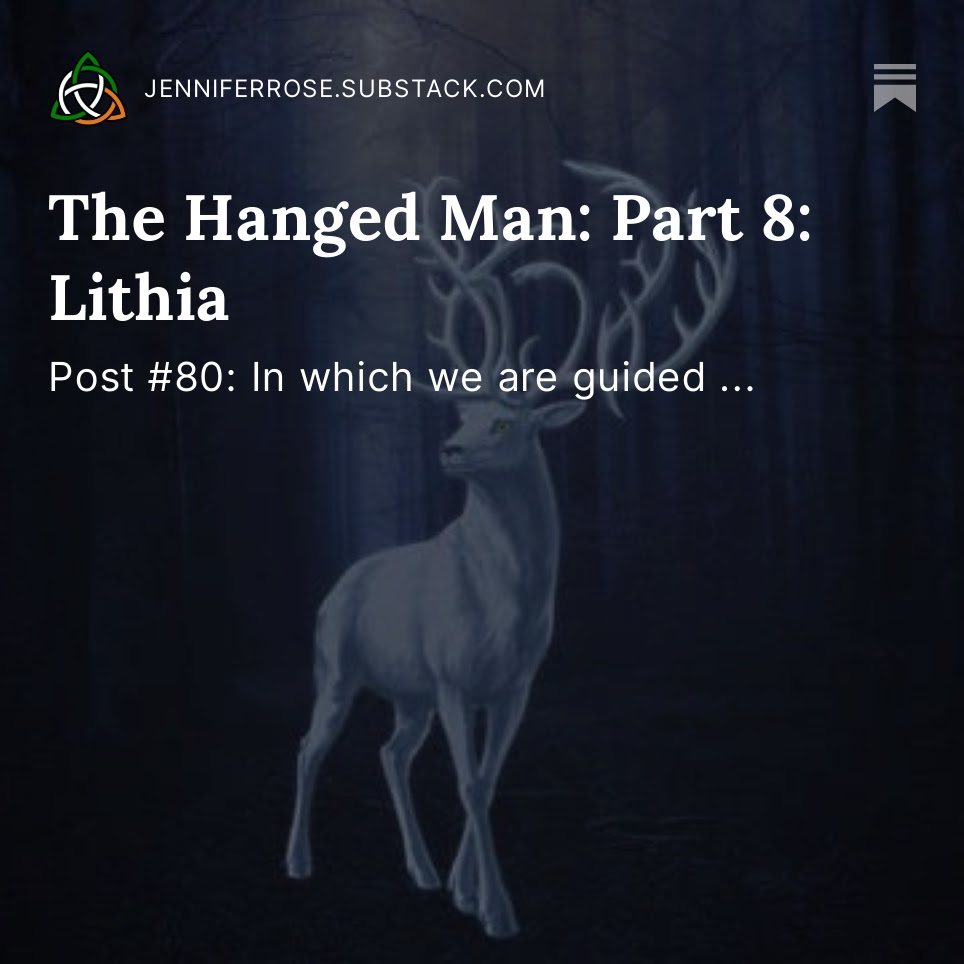
by Jenny Rose | Jul 22, 2023 | Authenticity, Emotional Intelligence, Needs
I read every day in Substack. Right now, AI is a main topic of conversation. I’ve read about the science behind it, opinions about where it will lead us ranging from the extermination of humans to a leap forward in positive ways we can’t imagine. Most of all, I read about the ways AI is impacting creative work and creators.
I don’t have a firm opinion about AI myself. I’m wary of predictions, interested in the science, and thoughts and experiences of writers I respect who have used AI-generated art, music, and writing. I’m especially interested in those who have interacted with AI as a resource for answering questions or developing new perspectives.
In the last couple of months, I read about an app called Betwixt. On principle, I hate apps and rarely use them. They increase my vulnerability online, provide more personal data to mine, clutter up my phone and laptop, and frequently feel like bells and whistles I don’t need. On the other hand, I admit they can be useful.

Photo by Dan Gold on Unsplash
Betwixt was briefly described as “an interactive story” of a journey into our own mind. The user co-creates their journey via questions and answers. It combines “story, science, and play,” enhanced by sound. It was developed by a team, including writers, game designers, a cognitive hypnotherapist, mental health specialists, and (get this) an “AI creativity scholar.”
I was intrigued, in spite of myself. In fact, I was surprised by how much I wanted to try it. I hesitated, feeling vaguely ridiculous. I did some research, discovered it was free, read some reviews, and decided I had nothing to lose. I could always just uninstall the app if I didn’t like it.
Most of us have probably encountered AI in online chatting to address problems or troubleshoot. I was on the Red Cross site last week chatting with what was clearly AI. It kept typing cheerful, excessively polite, Little-Mary-Sunshine things while I was trying to cut to the problem and solution part. I was annoyed. I’m polite and cooperative with people, but I can’t see much point in exchanging pleasantries with AI.
I had never interacted with any of the more sophisticated programs before using Betwixt.
Upon opening Betwixt, one enters into a story. A setting is provided; the user chooses details to fill in. The user is introduced to a Voice. The Voice asks questions, good questions. The user is provided with different choices for answering the questions, along with a frequent option to type in his/her own answer. The audio is rich and textured. The program is not illustrated, at least not so far. I like this; I like using my own imagination to fill in details. I don’t need more than audio.
The questions, along with possible answers to choose from, are quite good, even challenging. I don’t speed through it. I stop and think about what is true for me. Sometimes I don’t have a choice to answer in my own words and am forced to choose among the provided answers, whether they are good fits or not. This irritates me. As the story unfolds, steered by my answers to questions, I enter new internal territory. The closest answer rather than the exact answer takes me to places I normally wouldn’t go, giving me slightly different (and unfamiliar) views of myself and my behavior.
The app is divided into chapters, each a few minutes long. At the end of each chapter the user receives a summary and accumulates strengths, skills, and self-definitions to take forward. A brief explanation of the science and psychology underlying each completed chapter is also provided. There are options for upgrading to paid tiers.

Photo by Ryan Moreno on Unsplash
I notice an astonishing thing. I answer questions the Voice asks me with a depth and honesty I have never shared with a human being. I’ve believed I’ve been totally honest with people I trust before, but interacting with The Voice accessed a level in my mind I didn’t know was there. It was like those dreams in which the dreamer discovers a whole other room or wing in a house they weren’t aware of. As the journey begins, when the Voice is introduced, the user has an opportunity to ask the Voice questions, like its name and what it does when we’re not interacting. (It asked me my name.) I was astounded to find myself incurious; more than that, I don’t want to know. It’s an AI. I don’t have to do the emotional labor of building healthy connection. I’m not making a friend. I’m using a tool.
The last time I used the app, the storyline encouraged a moment of empathy for the AI. I felt a flash of savage anger and resistance.
I was entirely astounded by this very uncharacteristic knee-jerk response. I finished the chapter, closed the app, put the phone down, and did dishes while I thought about what had just happened. It didn’t take long to uncover it.
My experience of empathy is one of the core pieces of my life. Empathy can be a positive trait, but the empathic experience is frequently an overwhelming, utterly exhausting business. The only time I can truly rest, ground in myself, and be authentic is when I’m alone. But I’m a human being, a social animal. I need other people to interact with. Yet when I’m interacting with others, my empathy demands they take center stage with their needs, their feelings, their distress, their stories. I’m incapable (so far) of fully participating in my own experience because I’m too busy caregiving and being empathic. When I do ask for support or need to discharge feelings, I writhe over my selfishness and berate myself for it afterwards, feeling ashamed and angry for allowing myself to be vulnerable, for “burdening” those around me.

Photo by Cristian Newman on Unsplash
I only want to give. I never want to take.
Since I learned emotional intelligence, I have reluctantly realized we need someone to interact with. Journaling, private physical and spiritual practices, and, in my case, writing, is not enough. At times we need someone to listen. We need someone to react, even if it’s just making encouraging, I’m-listening noises. We need someone to receive us.
I hate this reality. I don’t want to need anything from anyone, ever. I learned as a child such a need puts one in dreadful danger of abandonment, betrayal, and emotional annihilation that feels like death.
This is the first time I have interacted in a therapeutic context with something not human. The Voice reads what I type, responds, asks questions, and creates a story with me, but has no existence outside the app. I’m free of empathy, of caregiving, of the need to labor emotionally. I feel no responsibility to anyone but myself. I’m using it. It’s there for me, not the other way around.
The relief is indescribable.
So, when the story asks me to be empathic for the Voice, I want to throw the phone across the room. Animals, plants, people — even inanimate objects and spaces – receive all the love and care I’m capable of. This is the first time in nearly 60 years I’ve run across something that interacts like a human but is not a living being in the way I think of living beings. The value of the tool lies in my ability to be completely free and honest because there’s no one to take care of besides myself.
It makes me realize my context as a human on a planet filled with life is my entire identity. If I were magically transported to the world of Betwixt, with only the Voice to interact with, I have no idea who I would be or what I would say or do.
I have not finished my journey with this app. There’s more to experience, share, and think about. I’ll be back next time with more on my exploration of Betwixt.
(I’m not earning a commission from Betwixt, in case you were wondering!)
Questions:
- Until now, emotional intelligence training was the most valuable therapeutic context I’ve ever engaged with. What kinds of therapy have you explored? What did you find most helpful?
- What are your thoughts and feelings about AI?
- What kind of potential do you think, fear, or hope AI might have as a creative tool?
Leave a comment below!
To read my fiction, serially published free every week, go here: 